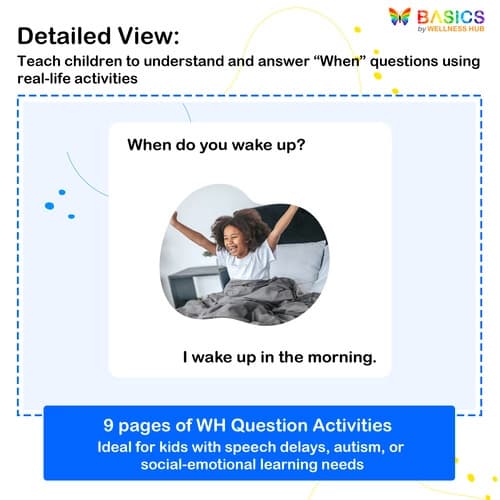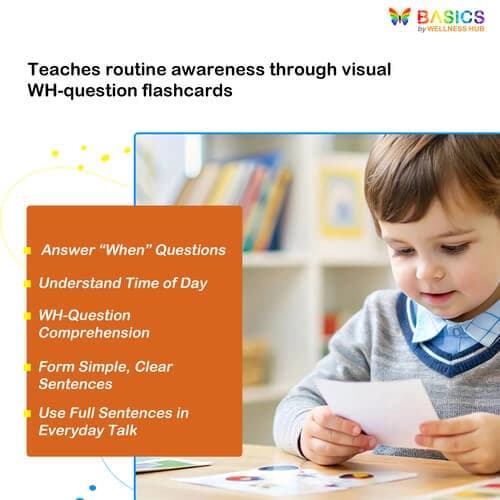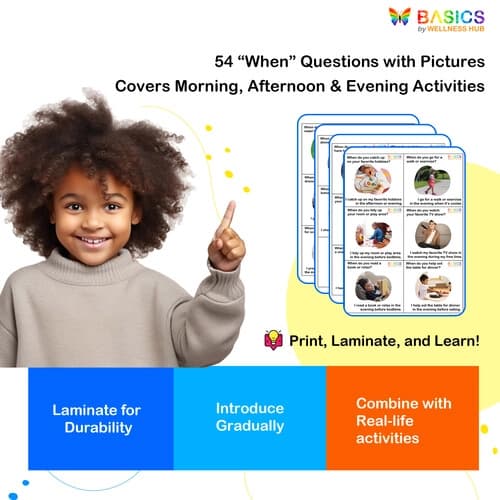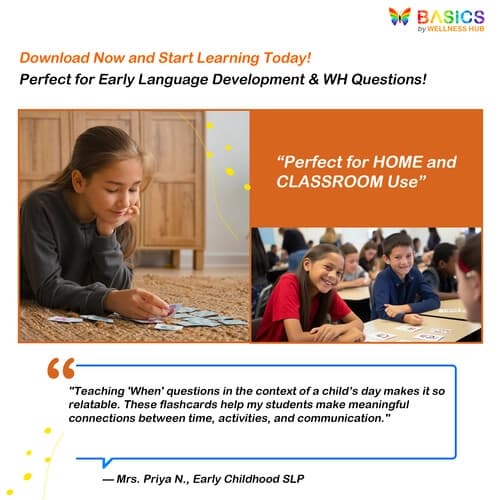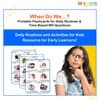


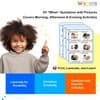
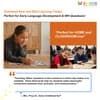
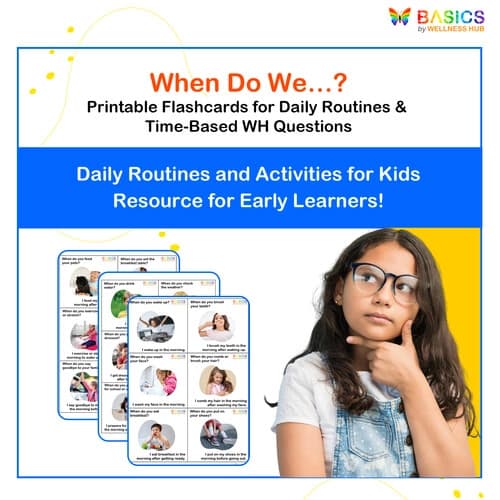
When Questions Flashcards – Daily Routines and Activities for Kids (Printable PDF)
₹80
₹160
50% off
0 (0 ratings)
Grade Levels
Pre-K - Grade 2 (Ages 3-7)
Content Overview
Format: Printable PDF, Total Pages: 9, Features: 54 illustrated “When” questions with answers about daily routines
Categories
Pages from the Resource
Help children learn to answer “When” questions through daily routines like waking up, eating meals, and going to bed. This printable flashcard set features 54 real-life questions with visual prompts and simple sentence answers. Ideal for building WH-question comprehension, time-related vocabulary, and communication skills in early learners and children with special needs.
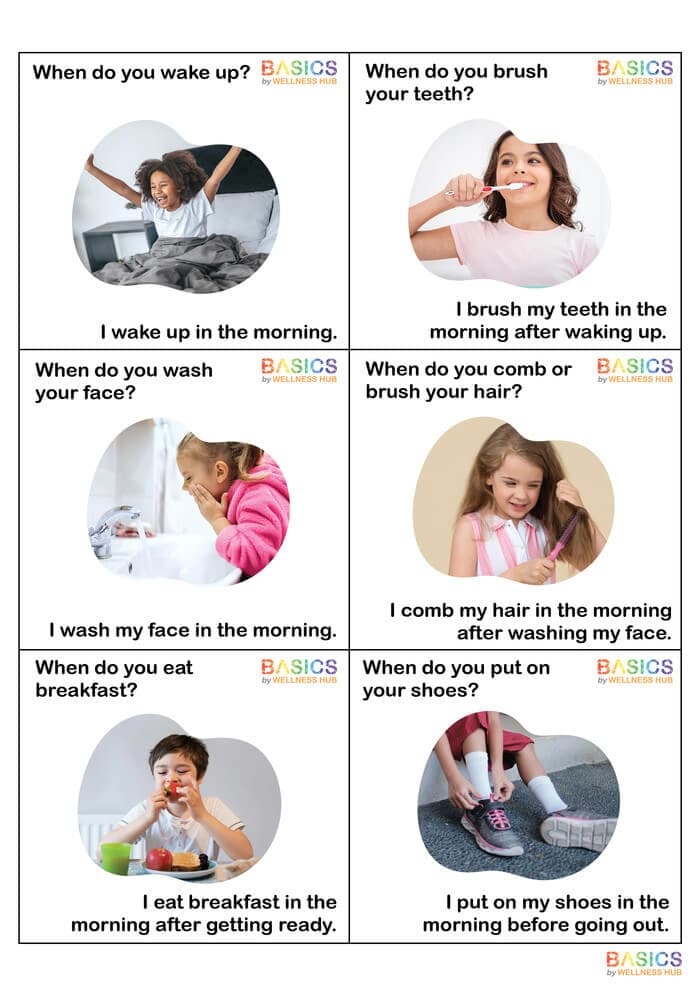
Page 1
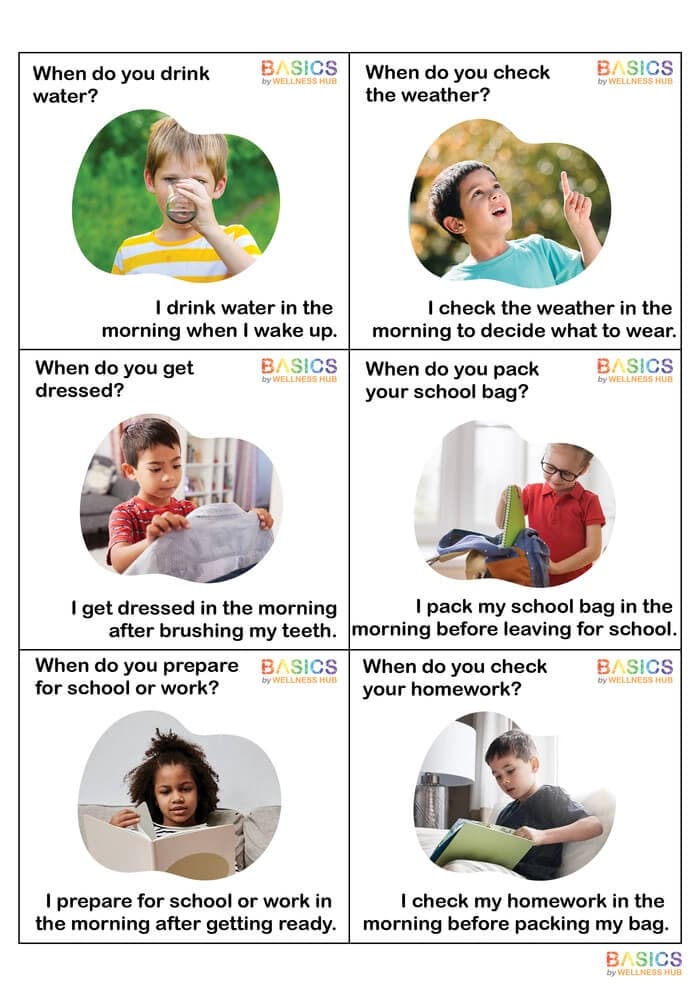
Page 2
What Users Say
0
0 ratings
5
0+
4
0+
3
0+
2
0+
1
0+
5 Stars
Product is Good to use.
1 year ago
Varsha Parent
Similar Products

When Questions Flashcards – Food and Meals for Kids (Free Printable PDF)
FREE
₹160
50% off
4.8 (54 ratings)
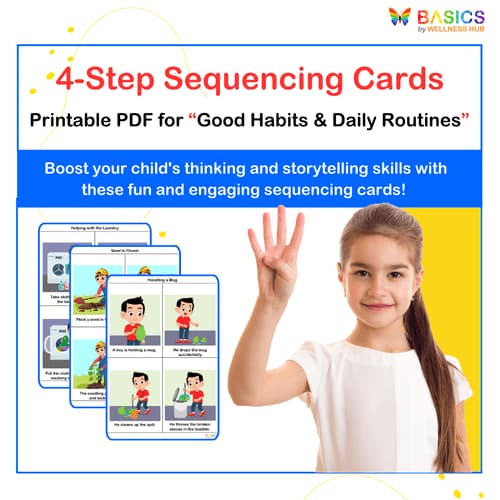
4-Step Sequencing Cards: Printable PDF for Good Habits & Daily Routines
₹ 80.00
₹ 160.00
50% off
4.9 (52 ratings)
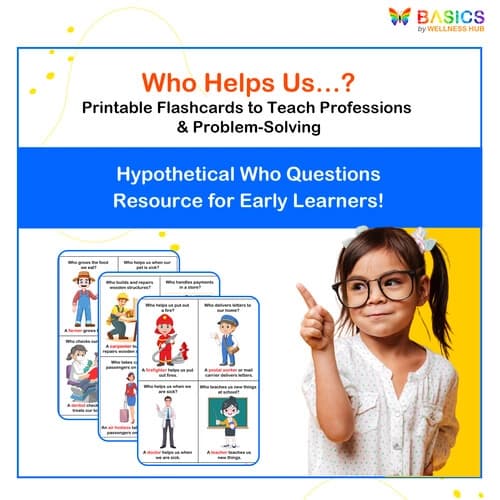
Hypothetical Who Questions – Professions Flashcards for Kids (Printable PDF)
₹ 80.00
₹ 160.00
50% off
4.9 (56 ratings)
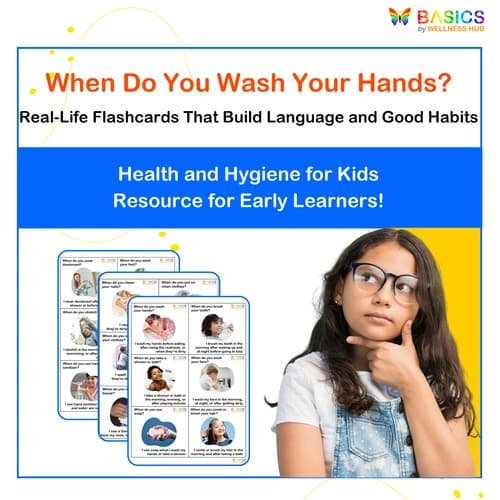
When Questions Flashcards – Health and Hygiene for Kids (Printable PDF)
₹ 80.00
₹ 160.00
50% off
4.9 (58 ratings)
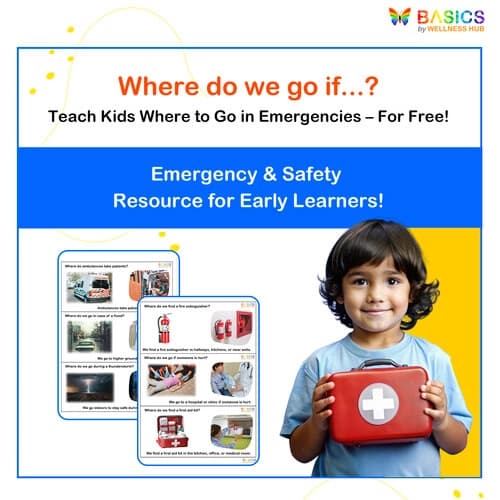
Where Do We Go? WH Questions – Emergency & Safety (Free Printable PDF)
FREE
₹160
50% off
4.8 (60 ratings)
About the Product
Introduction
Answering “When” questions is an essential part of language development, helping children understand and express the timing of events in their daily life. This set of printable flashcards is designed to teach children how to respond to “When” questions using real-life routines they experience every day—like waking up, eating lunch, and going to bed.
With 54 illustrated flashcards across morning, afternoon, and evening routines, this resource supports WH-question comprehension, sequencing skills, and the development of time-related vocabulary. It’s an ideal tool for use in speech therapy, early learning classrooms, special education, and home practice.
✅ Product Details
- Format: Printable PDF
- Total Pages: 9
- Flashcards Included: 54 (6 cards per page)
- Visuals: Bright, child-friendly illustrations of daily activities
- Question Format: Each card presents a “When” question with a visual cue and a short, clear answer
- Routine Categories:
- Morning (e.g., waking up, brushing teeth, going to school)
- Afternoon (e.g., eating lunch, napping, playing)
- Evening/Night (e.g., doing homework, eating dinner, going to bed)
✅ Educational Benefits
- WH-Question Comprehension: Builds foundational skills in understanding and answering “When” questions
- Routine Awareness: Helps children associate events with appropriate times of the day
- Time Vocabulary Development: Introduces terms like morning, afternoon, evening, night, midday, etc.
- Sequencing & Predictability: Reinforces the natural order of daily events
- Supports Special Needs Learning: Highly beneficial for children with autism, ADHD, and language delays
- Versatile for Learning Environments: Suitable for one-on-one therapy, classroom instruction, or home-based routines
✅ Instructions for Use
- Print and Prepare the Cards
- Download and print on regular or cardstock paper. Laminate for long-term use.
- Optionally cut them into flashcards or use full-page layouts.
- Introduce by Time of Day
- Start with cards from one category (e.g., Morning). Ask the question and model the answer.
- Example: “When do you wake up?” → “I wake up in the morning.”
- Use in Daily Routines
- Align card use with real-life activities (e.g., show the bedtime card during your child’s nighttime routine).
✅ Reinforces understanding through real-world context.
- Align card use with real-life activities (e.g., show the bedtime card during your child’s nighttime routine).
- Promote Verbal Repetition and Expansion
- Encourage children to repeat the sentence or expand it.
- Example: “I wake up in the morning, then I brush my teeth.”
- Pair with Visual Schedules or Charts
- Combine with a daily schedule or calendar to help children understand the flow of the day.
- Use for Sequencing Games
- Mix cards and ask the child to arrange them in the correct order from morning to night.
- Incorporate into Group Activities
- Use during circle time or speech groups—each child answers a “When” question related to their own day.
✅ Activities Using the Resource
These flashcards are not only designed for answering questions but also for encouraging conversation, routine awareness, and language-building. Here are several engaging and practical activities to make the most of this resource:
1. Daily Routine Talk-Along
- Use the flashcards during the actual routine.
- Example: Show the “When do you brush your teeth?” card in the morning and model the answer: “I brush my teeth in the morning.”
✅ Builds context-based learning and real-time language reinforcement.
2. Time of Day Sorting Game
- Mix up flashcards and have the child sort them into morning, afternoon, evening, and night
✅ Strengthens understanding of sequencing and time-related vocabulary.
3. WH Question Circle Time
- Use in group or classroom settings.
- Each child picks a card, reads the question aloud, and answers it or acts it out.
✅ Builds confidence, participation, and speech fluency.
4. Daily Routine Matching
- Pair these flashcards with visual schedule cards or real-life photos.
- Match: “When do you eat lunch?” → picture of a lunchbox or child eating.
✅ Helps with generalization and visual association.
5. Personalized Story Time
- Ask children to choose 3–5 cards and use them to create a daily routine story.
- Example: “I wake up in the morning. I go to school. I eat lunch in the afternoon...”
✅ Supports storytelling, narrative structure, and expressive language.
6. Calendar or Clock Integration
- Use flashcards alongside a calendar or clock to discuss timing.
- Point to the time of day and ask, “What do you do at 12 PM?” → Match the flashcard.
✅ Connects time-telling with verbal routines.
FAQs
Q1: What age group is this resource ideal for?
A1: It is best suited for children aged 3 to 7 years, particularly in Pre-K to Grade 2.
Q2: Can this be used with children who have autism or language delays?
A2: Yes! These flashcards are highly effective for children with autism, speech delays, ADHD, and social communication difficulties, due to their structured format and visual support.
Q3: How many questions are included in this resource?
A3: The set includes 54 “When” questions, divided across 9 pages, with 6 cards per page.
Q4: Is this suitable for group or classroom use?
A4: Absolutely. These cards work well for group activities, circle time, and classroom routines, as well as individual therapy sessions.
Q5: Can I use this to support speech therapy goals?
A5: Yes! It is especially useful for targeting goals such as WH-question comprehension, time-related vocabulary, sequencing, and sentence formation.
Q6: Can I customize or laminate the cards?
A6: You can laminate for durability or print only the pages you need. Customizing is allowed for personal use, but not for redistribution.
✅ Usage Rights and Restrictions
- This resource is intended for personal, educational, and therapeutic use only.
- You may use it in:
- Home learning
- Speech therapy sessions
- Special education or mainstream classrooms
- You may not:
- Share, resell, or distribute this product publicly or commercially
- Upload the PDF to external platforms or groups
- Edit and redistribute the content as your own
- If you wish to recommend the resource, please link directly to the original download page.
✅ Conclusion
The When Questions Flashcards – Daily Routines and Activities resource provides a practical, visual, and developmentally appropriate way for children to learn about time, sequence, and communication. From waking up to going to bed, these cards help children understand when things happen, build WH-question comprehension, and strengthen language skills that support everyday interaction.
Whether used by parents at home, teachers in classrooms, or therapists in sessions, this resource offers a structured yet flexible tool for building speech and life skills—one daily routine at a time.
